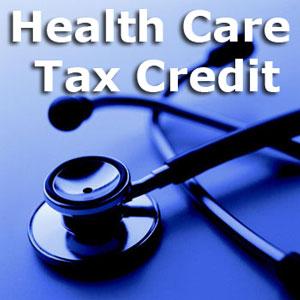Health Care Tax Credit
Health coverage legislation enacted in 2011 included a Small Business Health Care Tax Credit to help small businesses and small tax-exempt organizations provide health insurance coverage to their employees.
Small businesses and tax-exempt organizations providing health insurance coverage will qualify for a special tax credit. Included in the health care reform legislation, the Patient Protection and Affordable Care Act encourages small business employers to offer health insurance coverage for the first time or maintain coverage they already have. In general, the credit is available to small business employers paying at least half the cost of single coverage for their employees.
Go to www.irs.gov, search: Health Care Tax Credit.
Earned Income Tax Credit
 Help your employees increase their take-home pay at no cost to you!
Help your employees increase their take-home pay at no cost to you!
Please help us alert your employees about a valuable tax credit that could put up to $5,751 in their pockets. If you have employees who earned less than $49,078 in 2011, they may qualify for the Earned Income Tax Credit, or EITC. IRS estimates that four out of five individuals eligible to claim EITC do not. This leaves millions of individuals who could receive the benefit that could make a difference. With your assistance, we can reduce that number.
Please note, before taxpayers can receive EITC, they must first file federal income tax returns, even if they are not otherwise required to file. Some states and cities have a similar tax credit, increasing the dollars due these employees. IRS has several resources to help you inform your employees about EITC. Go to the EITC employer page for links to technical information, communication toolkits and marketing materials.
Some relatively inexpensive ways you can alert your employees about EITC include:
-
Posters in employee break rooms;
-
Messages on your company intranet site;
-
Articles in your company newsletter;
-
A link from your intranet site to EITC information on www.irs.gov;
-
Email messages to your workforce;
-
Stuffers with your Form W-2 mail-out;
-
Leveraging other internal communication channels;
-
Including EITC information in new employee orientations.
Increased Information Reporting Requirements
Recognizing the importance of compliance with the Internal Revenue Code for revenue collections, Congress enacted a number of provisions to enhance tax filing accuracy. The legislation requires new information reporting to the IRS and taxpayers for issues contributing to the federal tax gap. These new requirements may relate to your business. Banks and third party networks must report payment card and other payments made to merchants and payees. These organizations are required to issue Form 1099-K for payments starting January 1, 2011. Effective for corporate stock sales starting January 1, 2011, brokers must report the basis of "specified" securities sales, and if the sale is a short or long-term gain/loss. The Form 1099-B was revised to reflect these changes. Visit www.irs.gov, search: Third Party Reporting Center for more information.
Reminder: Business Package Mailings End Following Growth of e-File
Business taxpayers will no longer receive additional tax packages in the mail from the IRS. Businesses may go to www.irs.gov, then click on Forms and Publications and follow the directions for getting their forms, instructions and publications. The IRS took these steps due to the continued growth in electronic filing as well as to help reduce costs. Additionally, most business forms are available through tax professionals and tax software.
Posted at 6:03 AM



